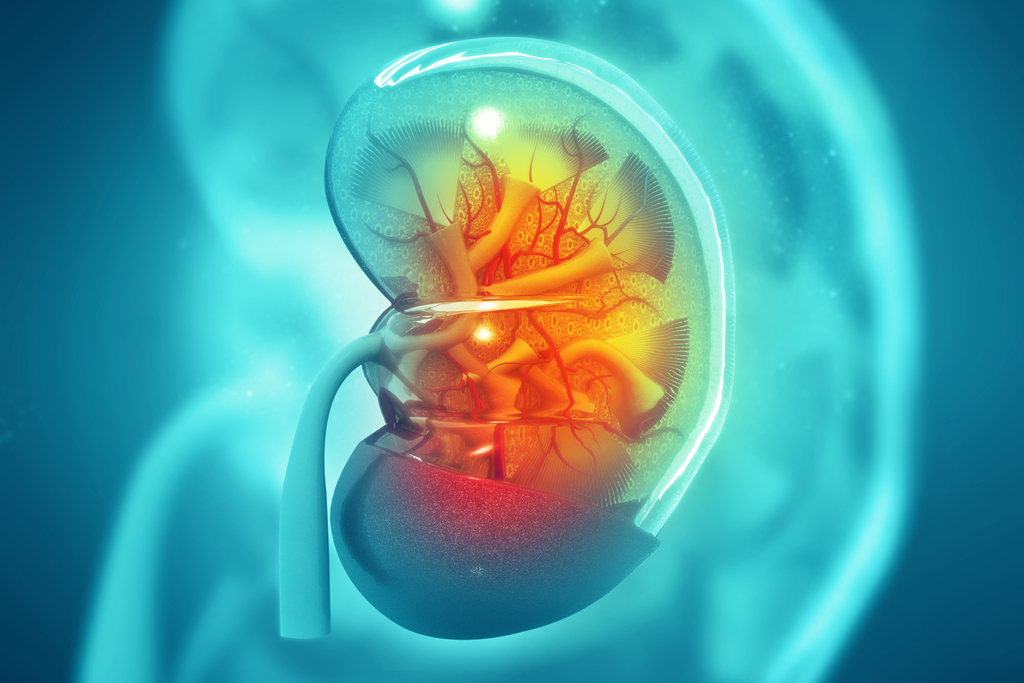Hypoparathyroidism Patients on Hormone Therapy Should Be Monitored for Renal Calcium Deposits, Study Finds

With the increasing use of parathyroid hormone therapy in patients with hypoparathyroidism, physicians need to closely monitor urinary citrate levels which, if too low, may result in calcium deposits and kidney stones, according to researchers.
Their study, “Hypocitraturia is an Untoward Side Effect of Synthetic Human Parathyroid Hormone (hPTH) 1-34 Therapy in Hypoparathyroidism that May Increase Renal Morbidity,” was published in the Journal of Bone and Mineral Research.
Parathyroid hormone (PTH) plays a significant role in keeping blood calcium levels within a narrow normal range. Patients with hypoparathyroidism — low levels of PTH — have low calcium in their blood (hypocalcemia), high levels of phosphate (hyperphosphatemia), and kidney abnormalities.
Studies have shown that treatment with synthetic human parathyroid hormone (hPTH) helps prevent hypocalcemia in patients with hypoparathyroidism.
However, this has not been consistently shown to lower high levels of calcium in urine (hypercalciuria). In addition, there are no long-term data looking at hPTH’s ability to reduce kidney abnormalities associated with hypoparathyroidism.
A chemical in urine called citrate helps keep the calcium present in urine in its liquid form instead of a solid form. Low levels of urinary citrate (hypocitraturia) is a known risk factor for the development of renal calcification, a condition in which patients develops solid calcium crystals in the kidney.
High levels of calcium deposited in the kidneys (nephrocalcinosis) can result in the development of kidney stones (nephrolithiasis).
Evidence suggest that parathyroid hormone therapy may actually increase the calcification process. However, the prevalence of low levels of urinary citrate in hypoparathyroid patients treated with hPTH is unknown.
Researchers evaluated 32 patients with hypoparathyroidism who were treated with hormone therapy for five years.
At the start of the study — before hormone therapy treatment — patients excreted significant amounts of both citrate and calcium in their urine. After hPTH therapy, both urinary calcium and urinary citrate levels were lower.
However, the decrease in urinary citrate was significantly more dramatic than the decrease in urinary calcium, leading to an imbalance in the ratio of urinary calcium/citrate and increasing the risk of developing calcium deposits and kidney stones.
After hPTH was discontinued, urinary citrate returned to levels similar to those seen at the start of the study.
“These findings suggest that the decrease in urine citrate was likely due to the hPTH 1-34 therapy, rather than simply the decrease in urine calcium,” the researchers wrote.
Despite a reduction in urinary calcium excretion, new or worsening nephrocalcinosis developed in 52% of patients treated with hPTH, likely related to reduced levels of citrate induced by hPTH.
In fact, researchers found that higher doses of total daily hPTH were associated with lower levels of urinary citrate and higher urine calcium/citrate ratio — further suggesting the direct role of hPTH in hypocitraturia.
“With increasing use of recombinant PTH 1-34 and PTH 1-84 for the treatment of hypoparathyroidism, monitoring and possible treatments for hypocitraturia and renal calcification seem warranted,” researchers concluded.






